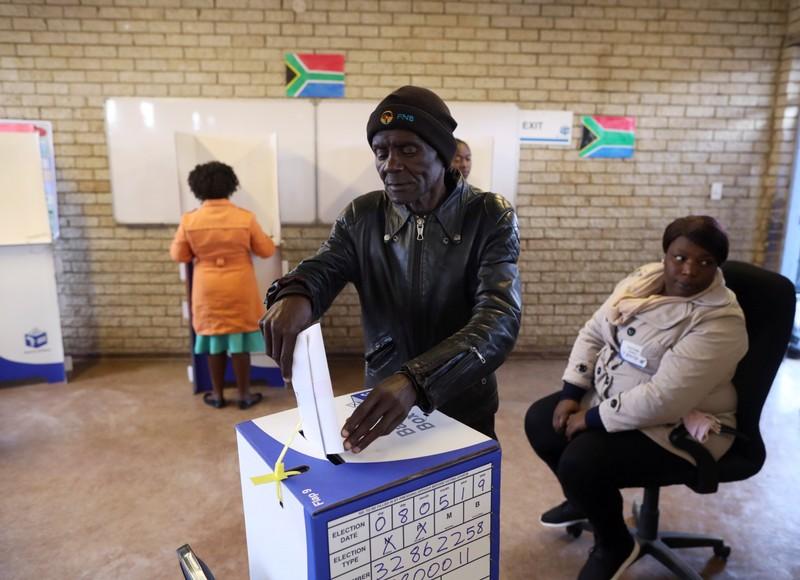
Vote count underway in South Africa

South African elections officials counted ballot papers early on Thursday, a day after a vote seen as the toughest test yet for the ruling African National Congress (ANC) party 25 years after it swept to power at the end of white minority rule.
Opinion polls suggest the ANC will again win a majority of the parliament’s 400 seats, but analysts say its margin of victory may fall from the 62 percent of the vote it secured in the last election in 2014 because of frustration with slow progress addressing racial disparities in income and wealth.
The elections for a new parliament and nine provincial legislatures are the first barometer of national sentiment since President Cyril Ramaphosa replaced scandal-plagued Jacob Zuma as head of state in February 2018.
The ANC’s biggest challengers at these elections are the main opposition party, the Democratic Alliance (DA), and the leftist Economic Freedom Fighters (EFF). The DA won 22 percent of the parliamentary vote in 2014 and the EFF six percent.
Results from some smaller voting districts started to trickle in on Thursday morning. As of 0330 GMT, more than 1.3 million votes had been processed out of around 26.8 million registered voters.
In the parliamentary vote the ANC was on around 53 percent, with the DA on 28 percent and the EFF on seven percent, with a turnout of 64 percent. Given that less five percent of the potential number of votes had been processed, it was too early to make an accurate prediction about the final result.
A full tally may not be known until Saturday.
Ramaphosa, who became ANC leader in December 2017 after narrowly defeating a faction allied with Zuma, has promised to improve poor public services, create jobs and fight corruption.
But he has been constrained by divisions within his own party, where some Zuma supporters still retain influence and oppose his agenda.






